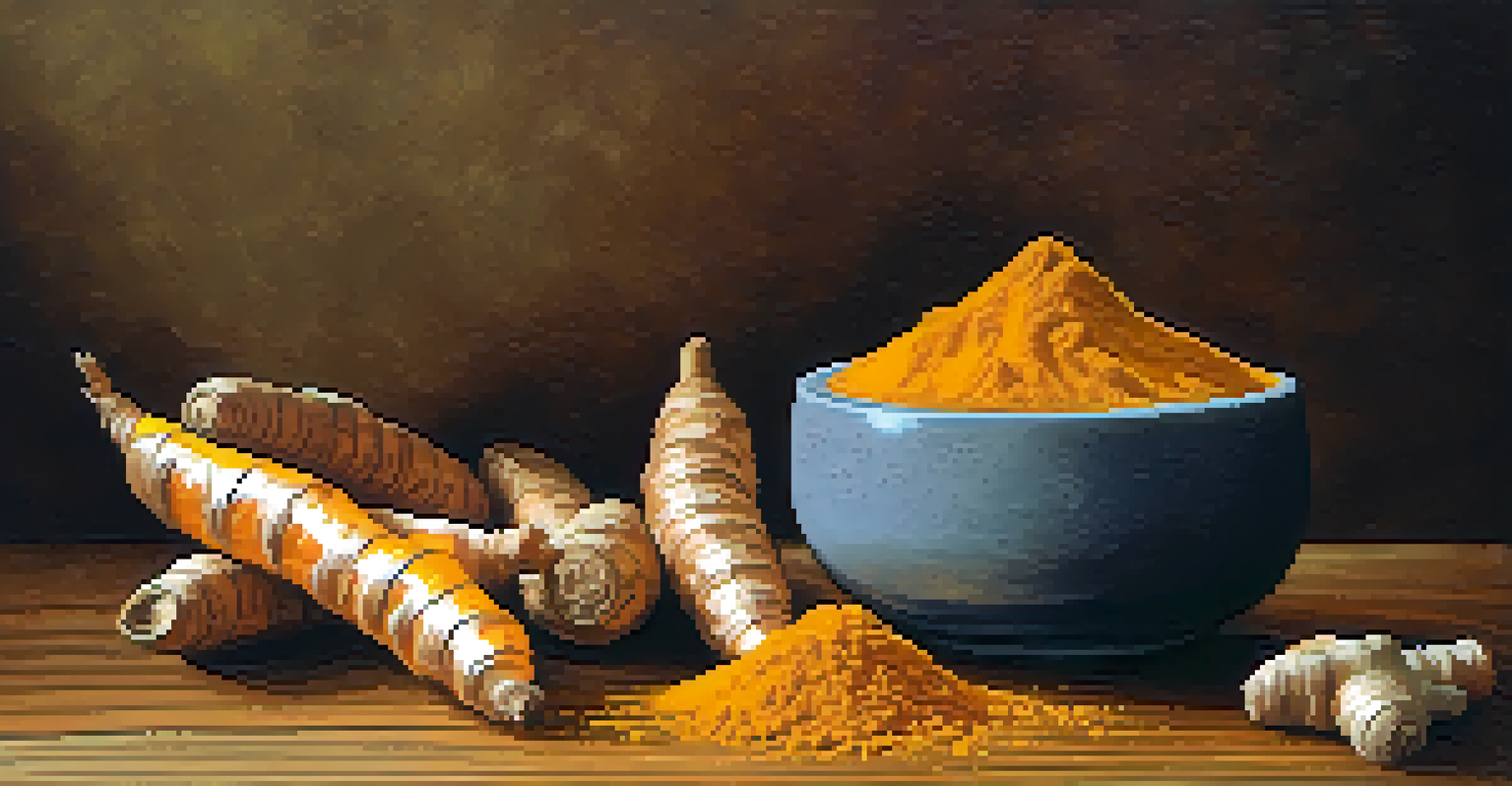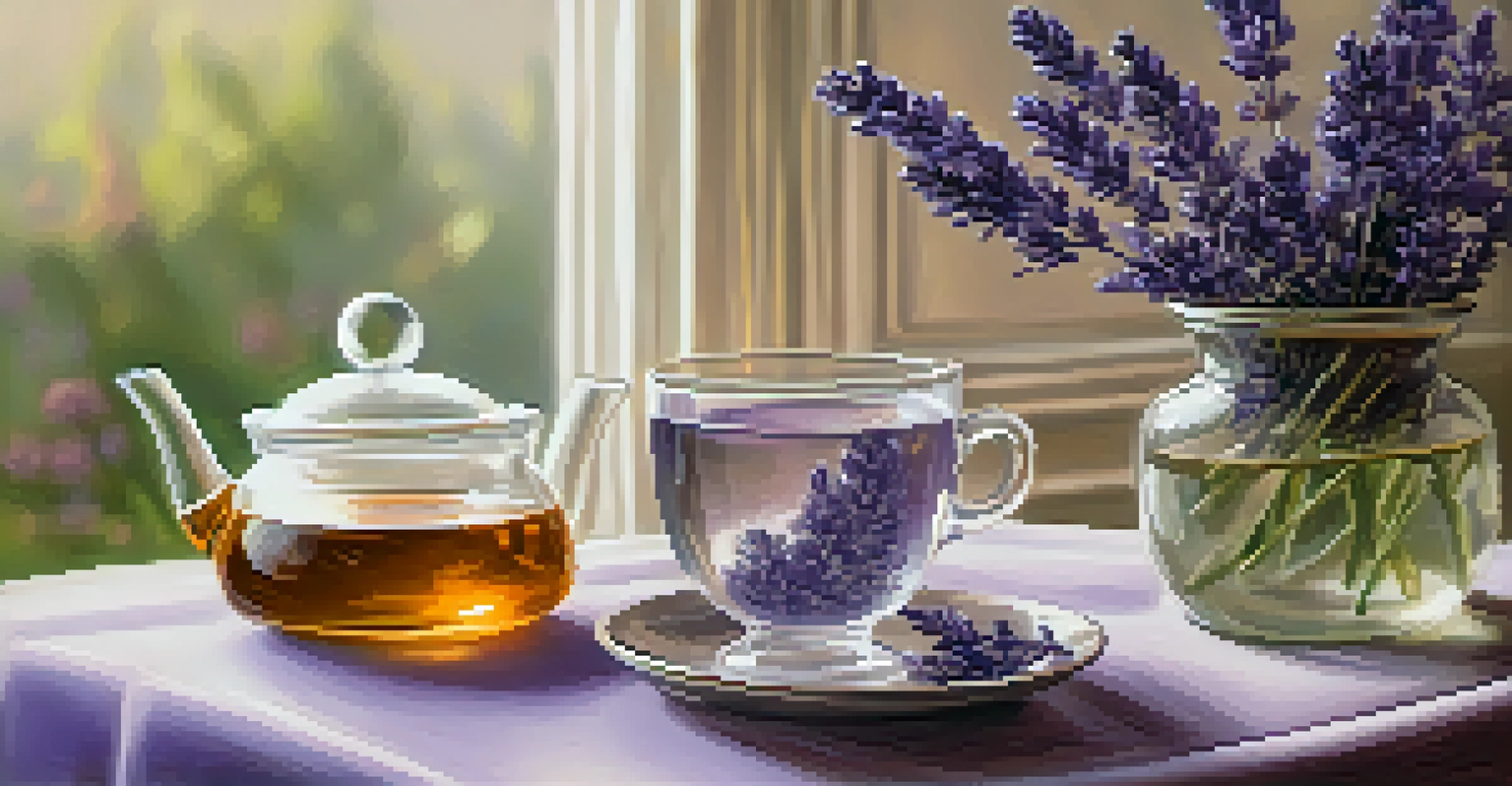Popular Medicinal Plants and Their Healing Properties

Introduction to Medicinal Plants and Their Importance
Medicinal plants have been part of human health care for centuries. They offer natural remedies for various ailments, often with fewer side effects than synthetic medications. As we continue to seek holistic approaches to health, understanding these plants becomes increasingly valuable.
The greatest medicine of all is to teach people how not to need it.
These plants not only help in treating illnesses but also play a significant role in maintaining overall well-being. From reducing inflammation to boosting immunity, their benefits are diverse. This article explores some of the most popular medicinal plants and their remarkable healing properties.
In our journey through the world of herbal medicine, we will uncover the science behind these plants and how they can be integrated into our daily lives. So, let's dive into the fascinating world of nature's pharmacy!
Aloe Vera: The Skin Savior
Aloe Vera is often hailed as a miracle plant, particularly for its soothing properties on the skin. The gel extracted from its leaves is renowned for treating burns, cuts, and skin irritations. It provides a cooling sensation that promotes healing, making it a staple in many first-aid kits.

Beyond skin care, Aloe Vera also has digestive benefits. Consuming its juice can help alleviate issues like heartburn and constipation. This dual-action makes it a must-have in both your medicine cabinet and your kitchen.
Medicinal Plants Enhance Health
Medicinal plants offer natural remedies with diverse health benefits, promoting overall well-being.
Additionally, Aloe Vera is packed with vitamins and minerals that contribute to overall health. Its anti-inflammatory properties can also assist in reducing swelling and redness, making it a versatile ally in natural healing.
Turmeric: The Golden Spice of Life
Turmeric, often recognized for its vibrant color, is much more than a cooking spice; it's a powerhouse of health benefits. Curcumin, the active compound in turmeric, boasts strong anti-inflammatory and antioxidant properties. This makes it effective in managing conditions like arthritis and even certain cancers.
Nature itself is the best physician.
Incorporating turmeric into your diet can be as simple as adding it to smoothies, soups, or teas. Its warm, earthy flavor not only enhances meals but also supports overall well-being. Regular consumption can lead to improved brain function and lower risk of heart disease.
Moreover, turmeric has been used in traditional medicine for centuries, showcasing its timeless relevance. Whether in capsules or as a spice, this golden root continues to shine in the realm of natural healing.
Ginger: The Digestive Dynamo
Ginger is another popular medicinal plant, celebrated for its ability to aid digestion. Often consumed as a tea or added to meals, it can help alleviate nausea and motion sickness. Its spicy flavor is not just palatable; it also works wonders for your stomach.
In addition to digestive health, ginger has anti-inflammatory effects that can relieve muscle pain and soreness. Athletes often turn to ginger to help with recovery post-exercise. It’s like having a natural remedy right in your spice cabinet!
Aloe Vera and Turmeric Benefits
Aloe Vera aids skin healing and digestion, while turmeric provides anti-inflammatory and antioxidant properties.
Furthermore, ginger's antioxidant properties can strengthen the immune system, making it a great ally during cold and flu season. This versatile root is easy to incorporate into your daily routine, whether in foods, teas, or supplements.
Peppermint: The Refreshing Relief
Peppermint is well-known for its refreshing flavor and aroma, but it also has impressive medicinal properties. The menthol in peppermint is effective in soothing headaches and migraines, often providing quick relief when applied topically or inhaled.
This aromatic herb is also beneficial for digestive health, helping to relieve bloating and gas. A cup of peppermint tea after a meal can work wonders for your stomach. Its calming effects can also reduce stress and promote relaxation.
Moreover, peppermint has antimicrobial properties that can support oral health. By using peppermint oil in your mouthwash or toothpaste, you can freshen your breath while maintaining a healthy mouth. This makes peppermint a delightful addition to your wellness routine.
Echinacea: The Immune Booster
Echinacea is often recognized as a go-to herb for boosting the immune system. Many people take Echinacea supplements or teas at the first sign of a cold, and research supports its ability to reduce the duration and severity of respiratory infections.
This beautiful purple flower not only fights off infections but also has anti-inflammatory properties. It can help soothe sore throats and reduce pain, making it a comforting option during illness. Echinacea's natural approach to health is appealing to those looking for alternative remedies.
Herbs Support Immunity and Relaxation
Echinacea boosts the immune system, and lavender promotes relaxation and improved sleep quality.
Additionally, Echinacea can be easily incorporated into your lifestyle, whether through capsules, teas, or tinctures. As we become more health-conscious, this plant stands out as a natural way to support our body's defenses.
Lavender: The Calming Herb
Lavender is perhaps best known for its soothing scent, often used in aromatherapy to promote relaxation and reduce anxiety. The essential oil derived from lavender flowers can be diffused in your home or added to baths for a calming experience.
In addition to its calming effects, lavender has been used for centuries to treat insomnia and improve sleep quality. A few drops of lavender oil on your pillow or a cup of lavender-infused tea can pave the way for a restful night.

Furthermore, lavender's antiseptic properties make it useful for minor burns and insect bites. Applying lavender oil can help soothe irritation and promote faster healing, blending beauty and function in one delightful plant.
Conclusion: Embracing Nature’s Remedies
As we wrap up our exploration of popular medicinal plants, it's clear that nature offers a treasure trove of health benefits. From soothing skin to boosting immunity, these plants provide natural alternatives to modern medicine. Embracing these remedies can enhance our well-being in simple yet profound ways.
Incorporating medicinal plants into your daily routine doesn’t have to be complicated. Whether you grow them in your garden, purchase them at the store, or use them as supplements, small changes can lead to significant improvements in your health.
So, as you navigate your wellness journey, consider the powerful healing properties of these plants. Nature has a remarkable way of supporting us, and by tapping into these gifts, we can foster a healthier, more vibrant life.